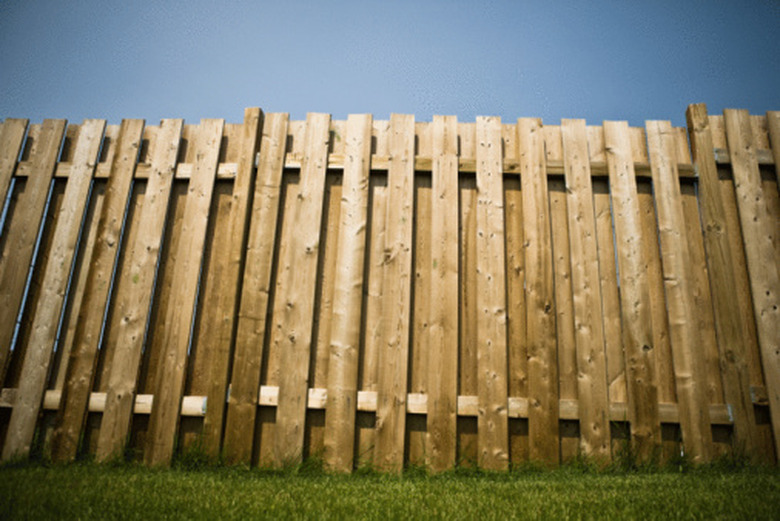How To Clean Bird Droppings Off Wood Fences
Things Needed
- Garden hose
- Bucket
- Stiff scrub brush
- Mild dish soap
- ¼ cup trisodium phosphate
Tip
You can use a power washer on your wood fence to remove bird droppings. Choose a power washer with between 500 and 800 psi so you don't damage the wood. Use a wide spray nozzle and hold the tip 12 inches from the wood. Move the wand in a back-and-forth motion until all of the droppings are gone. Avoid aiming the pressure washer at one spot for any extended period of time.
Warning
Wear rubber gloves and protective eye wear when using trisodium phosphate. Cover surrounding foliage, plants and landscaping with plastic sheeting when using trisodium phosphate or dish soap. Wear rubber gloves when cleaning up bird droppings to avoid exposure.
Looking out your window to see birds perched on your fence is a beautiful sight, but finding their droppings on the wood of your fence is less than appealing. Bird dropping not only look unsightly, the New Jersey Department of Health and Senior Services notes, they can pose a risk for disease as well. Clean the mess from your wood fence with the right methods and products to protect the wood from damage and to reduce your risk for exposure during cleanup.
Step 1
Hose down the affected areas of the fence with water from a garden hose. Use a low pressure setting to wet down the areas; spraying it forcefully may spread the droppings around. The idea is to wet the droppings first to avoid releasing spores during cleanup.
Step 2
Fill a bucket with hot water. Dip a stiff scrub brush into the water and scrub away as much of the droppings as possible. Rinse the areas again with water from the garden hose.
Step 3
Add a squirt of mild dish soap to the water if the droppings are still there. Use the stiff scrub brush and soapy water to scrub the fence again. Rinse the fence well with water from the garden hose.
Step 4
Mix a solution of trisodium phosphate and warm water if the droppings are especially troublesome. Combine 1 gallon of water and ¼ cup trisodium phosphate in a clean bucket. Scrub the droppings from the fence with a stiff scrub brush. Rinse the fence well with water from the garden hose.
